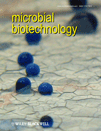
Research Journal of Biotechnology
Scope & Guideline
Unlocking the potential of biotechnological innovations.
Introduction
Aims and Scopes
- Biotechnological Innovations:
The journal emphasizes the development of new biotechnologies, including genetic engineering, microbial biotechnology, and enzyme technology, aimed at enhancing productivity and sustainability in various sectors. - Pharmaceutical Biotechnology:
Research on drug discovery, development, and delivery systems is a core focus, investigating the potential of natural compounds and synthetic drugs in treating various diseases, particularly cancer and infectious diseases. - Environmental Biotechnology:
The journal addresses bioremediation, waste management, and sustainable practices using microbial systems to tackle environmental pollution and promote ecological balance. - Agricultural Biotechnology:
Studies on plant biotechnology, including genetic modification, plant growth promotion, and pest resistance, are highlighted to improve crop yields and food security. - Microbial Diversity and Applications:
Research on microbial communities, their interactions, and their applications in biotechnology, such as bioprospecting for bioactive compounds and enzymes, is a significant area of interest. - Bioinformatics and Computational Biology:
The integration of bioinformatics tools for analyzing biological data, including molecular modeling and systems biology approaches, is emphasized to enhance understanding of complex biological systems.
Trending and Emerging
- Nanobiotechnology:
Research involving nanoparticles for drug delivery, diagnostics, and therapeutic applications is on the rise, reflecting the growing interest in nanotechnology's potential to revolutionize medicine and environmental science. - Synthetic Biology:
The field of synthetic biology, which combines engineering principles with biology to design and construct new biological parts and systems, is gaining prominence in the journal's publications. - CRISPR and Gene Editing Technologies:
The application of CRISPR technology for genetic modifications and therapeutic interventions is increasingly featured, highlighting its transformative potential in research and medicine. - Personalized Medicine:
Emerging studies focusing on personalized medicine approaches, particularly in cancer treatment and pharmacogenomics, indicate a shift towards tailored therapeutic strategies based on individual genetic profiles. - Microbiome Research:
Research exploring the human microbiome and its implications for health and disease is becoming more prominent, reflecting the increasing interest in understanding the role of microbiota in various biological processes.
Declining or Waning
- Traditional Plant-Based Remedies:
Research papers related to traditional herbal medicines and their applications have decreased. While still important, this area is being overshadowed by more innovative biotechnological approaches. - Basic Microbiology Studies:
There appears to be a waning interest in purely microbiological studies without a clear biotechnological application, as the focus shifts towards applied research with direct relevance to industry and healthcare. - Chemical Synthesis of Compounds:
The emphasis on synthetic chemistry methods for drug development has diminished, aligning with a growing preference for natural product research and biotechnological synthesis.
Similar Journals

Biotechnology and Genetic Engineering Reviews
Advancing the Frontiers of Biotechnology and Genetic Engineering.Biotechnology and Genetic Engineering Reviews is a prominent journal published by Taylor & Francis Ltd, specializing in the rapidly evolving fields of biotechnology and genetic engineering. Since its inception in 1984, this journal has served as a critical platform for researchers and professionals to disseminate groundbreaking scientific findings, review methodologies, and discuss emerging trends within the domain. With a substantial track record of convergence in its publication history from various years, it currently holds Q2 rankings in both Bioengineering and Biotechnology, alongside a Q3 ranking in Molecular Biology for 2023. Its dedication to quality research is reflected in its Scopus rankings, which position the journal favorably within the competitive landscape of biochemistry and molecular biology. Although it is not an open-access journal, Biotechnology and Genetic Engineering Reviews remains committed to providing accessible insights to the global scientific community, making it an invaluable resource for students, academics, and industry professionals keen on advancing their knowledge in these crucial fields.

JOURNAL OF MICROBIOLOGY
Connecting global minds in the realm of microbiology.JOURNAL OF MICROBIOLOGY, published by the Microbiological Society Korea, is a prestigious peer-reviewed journal dedicated to the advancement of knowledge in the fields of microbiology, applied microbiology, and biotechnology. Established in 1996, this journal serves as a vital platform for researchers and professionals from around the globe to disseminate their findings and engage in multidisciplinary discussions pertaining to microbial sciences. With an H-index that reflects its impact, the journal holds a commendable Q2 ranking in key categories including Applied Microbiology and Biotechnology, as well as Medicine (Miscellaneous), which underscores its significance in the academic community. Despite being a subscription-based journal, the JOURNAL OF MICROBIOLOGY aims to contribute to the understanding of microbial processes and their applications, facilitating advancements that are essential in health, industry, and environmental sciences. Researchers, students, and practitioners are encouraged to explore this rich resource for the latest research and trends in microbiology.

APPLIED BIOCHEMISTRY AND BIOTECHNOLOGY
Pioneering Sustainable Solutions through BiotechnologyApplied Biochemistry and Biotechnology is a leading journal published by Springer, dedicated to advancing research in the interdisciplinary fields of biochemistry, biotechnology, and applied microbiology. Established in 1981, this peer-reviewed journal covers a wide range of topics that encompass innovative techniques, methodologies, and applications of biochemistry and biotechnology in medicine, environmental engineering, and molecular biology. With a Q2 ranking in several categories and an increasing impact factor, the journal demonstrates significant influence and credibility within the scientific community. While traditionally subscription-based, the journal offers avenues for open access through selective agreements, making high-quality research accessible to a broader audience. Researchers, professionals, and students alike will find Applied Biochemistry and Biotechnology to be an invaluable resource for the latest developments and applications in biochemistry and its related fields, aiding in the quest for sustainable solutions and novel biotechnological advancements.

JOURNAL OF INDUSTRIAL MICROBIOLOGY & BIOTECHNOLOGY
Exploring Innovative Solutions for a Sustainable FutureJOURNAL OF INDUSTRIAL MICROBIOLOGY & BIOTECHNOLOGY, published by Oxford University Press, is a vital resource for researchers and professionals actively engaged in the fields of applied microbiology, biotechnology, and bioengineering. With an ISSN of 1367-5435 and E-ISSN of 1476-5535, this journal has established itself as a leading platform for disseminating innovative research findings and advancing knowledge in industrial microbiology since its inception in 1996. As of 2023, it is classified in the Q2 quartile across multiple categories including Applied Microbiology and Biotechnology, Bioengineering, and Medicine, underscoring its significance in the academic community. Notably, it ranks 26th of 127 in Applied Microbiology and Biotechnology, placing it in the 79th percentile, indicative of its high impact and influence. Although it does not currently offer Open Access, it remains a key outlet for high-quality scholarly articles that align with the objectives of improving industrial practices through biotechnological applications. For those interested in the latest developments and methodologies within the realm of applied microbiology and biotechnology, this journal serves as an indispensable reference.

MOLECULAR BIOTECHNOLOGY
Exploring the Frontiers of Molecular InnovationMOLECULAR BIOTECHNOLOGY, published by SPRINGERNATURE, is a pivotal journal in the fields of applied microbiology, molecular biology, biochemistry, and biotechnology. Since its inception in 1994, the journal has aimed to disseminate high-quality research that explores the intersection of molecular biology and technology, fostering advancements in biotechnology applications. With an ISSN of 1073-6085 and an E-ISSN of 1559-0305, it has established itself as a significant contributor to the scientific community, currently holding a Q3 ranking across multiple categories including Applied Microbiology & Biotechnology and Biochemistry in the 2023 metrics. Although not an open access publication, the journal remains accessible through various institutional subscriptions, providing valuable insights and findings to researchers and professionals. Given its ongoing commitment to quality and relevance, MOLECULAR BIOTECHNOLOGY serves as an essential resource for those involved in cutting-edge research and innovation in molecular biotechnology and related disciplines.

ELECTRONIC JOURNAL OF BIOTECHNOLOGY
Advancing the Frontiers of Biotechnology and MicrobiologyThe Electronic Journal of Biotechnology is a premier Open Access journal published by Pontificia Universidad Catolica de Valparaiso, Chile, dedicated to advancing the fields of applied microbiology and biotechnology. With its inception in 1998 and an unwavering commitment to sharing knowledge, the journal has garnered a respectable ranking within the Q3 quartile for both its biotechnology and applied microbiology categories as of 2023, reflecting its significance in the academic community. Researchers and professionals will find its editorial rigor complemented by a robust platform for disseminating innovative findings, fostering collaboration, and driving forward biotechnology discussions. Given its inclusive approach, having transitioned to Open Access in 2014, the journal ensures that research is accessible to a global audience, making it a valuable resource for students, academics, and industry practitioners alike. Through the publication of original research, reviews, and critical insights, the Electronic Journal of Biotechnology aims to bridge the gap between scientific discovery and practical application, ultimately contributing to advancements in health, agriculture, and environmental sustainability.

ANNALS OF MICROBIOLOGY
Illuminating the path of discovery in applied microbiology.ANNALS OF MICROBIOLOGY is a prestigious journal dedicated to advancing the field of microbiological research, published by BMC, renowned for its commitment to providing open access to vital scientific findings. With its ISSN 1590-4261 and E-ISSN 1869-2044, this journal provides a platform for the dissemination of high-quality research since its inception in 1997. Renowned for its rigorous peer-review process, it has attained a commendable Q2 ranking in the Applied Microbiology and Biotechnology category in 2023, reflecting its significant contributions to the discipline. Positioned within the 67th percentile among its peers in Scopus rankings, ANNALS OF MICROBIOLOGY continues to facilitate the exchange of innovative ideas and methodologies, serving as an essential resource for researchers, professionals, and students alike. The journal covers a broad spectrum of topics, emphasizing the intersection of microbiology with applied sciences, thereby fostering an environment that encourages collaboration and advancement in this vital field. Scholars seeking to stay at the forefront of microbiological studies will find ANNALS OF MICROBIOLOGY an invaluable addition to their academic pursuits.

Microbial Biotechnology
Empowering scientists to innovate with microbial solutions.Microbial Biotechnology, published by WILEY, stands at the forefront of innovation in the field of applied microbiology and biotechnology, showcasing cutting-edge research and advancements within both academic and industrial contexts. As an Open Access journal since 2012, it ensures that high-quality research is easily accessible to researchers, professionals, and students globally, promoting knowledge sharing and collaboration. With an impressive impact, the journal holds a Q1 ranking in its categories—Applied Microbiology and Biotechnology, Biochemistry, Bioengineering, and Biotechnology—demonstrating its significance in the scientific community. The journal currently boasts a strong Scopus ranking in several relevant disciplines, including a top 10% position in Applied Microbiology and Biotechnology, highlighting its critical role in disseminating influential findings. Designed to foster dialogue and advance technology within the microbial sciences, Microbial Biotechnology is an essential resource for anyone committed to leveraging microbial processes for sustainable and innovative solutions.

BIOTECHNOLOGY ADVANCES
Unleashing Potential through Biotechnology ResearchBIOTECHNOLOGY ADVANCES is a premier, peer-reviewed journal published by PERGAMON-ELSEVIER SCIENCE LTD, dedicated to advancing knowledge in the rapidly evolving fields of biotechnology and bioengineering. With an ISSN of 0734-9750 and an E-ISSN of 1873-1899, this esteemed journal covers a wide spectrum of topics relevant to applied microbiology, molecular biology, and biochemical innovation. Recognized for its academic rigor, it holds a distinguished position in the top quartile (Q1) in multiple categories, including Applied Microbiology and Biotechnology, Bioengineering, and Biotechnology, further evidenced by its high rankings in Scopus, where it ranks #3/127 in Applied Microbiology and Biotechnology and #7/311 in Biotechnology. Researchers and professionals in the field value the journal not only for its comprehensive coverage of cutting-edge research but also for its commitment to disseminating critical findings and fostering collaboration. While BIOTECHNOLOGY ADVANCES currently operates under a subscription model, its potential impact on future innovations in biotechnology cannot be overstated, making it an essential resource for anyone interested in the forefront of biotechnological advancements.

Applied Food Biotechnology
Unlocking the potential of biological processes in food technology.Applied Food Biotechnology is a dynamic and engaging open-access journal dedicated to the interdisciplinary field of food biotechnology, published by Shahid Beheshti University of Medical Sciences, Faculty of Medicine. Since its inception in 2014, this journal has provided a platform for the dissemination of cutting-edge research that combines aspects of applied microbiology, biotechnology, and food science, significantly contributing to advancements in food safety, processing, and nutritional enhancement. With an impressive impact factor, the journal ranks Q3 in multiple relevant categories, including Applied Microbiology and Biotechnology, Biotechnology, and Food Science in 2023, highlighting its influence within these fields. The journal's scope encourages innovative studies that investigate the utilization of biological processes in food technology, aiming to foster both scientific inquiry and practical applications across diverse demographics. With its commitment to open access, Applied Food Biotechnology ensures that all research findings are readily available to researchers, professionals, and students globally, enhancing collaboration and knowledge sharing. Located in Tehran, Iran, this journal serves as a vital resource for anyone invested in the future of food biotechnology.